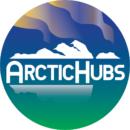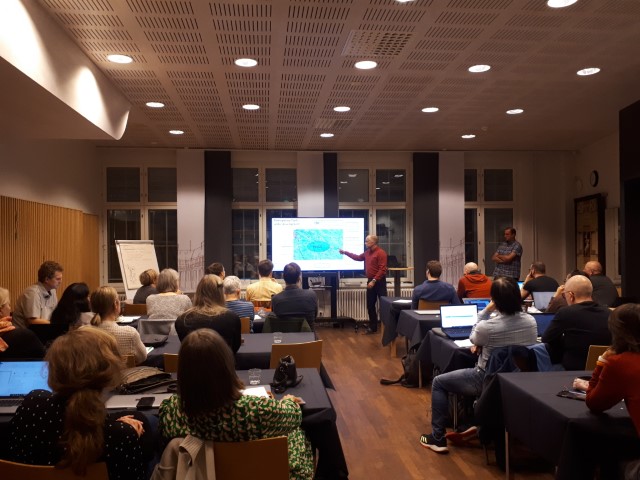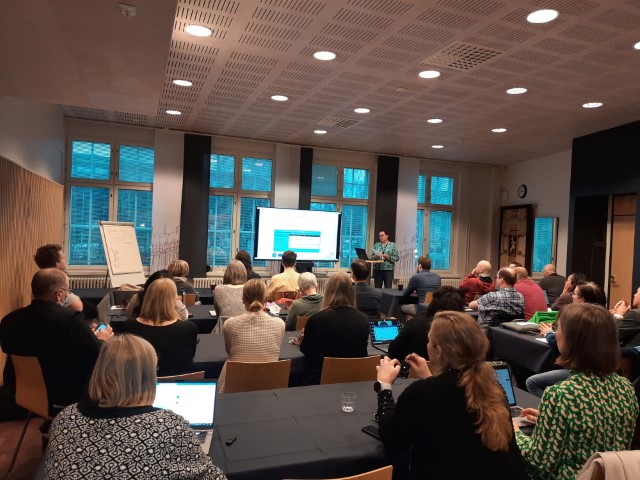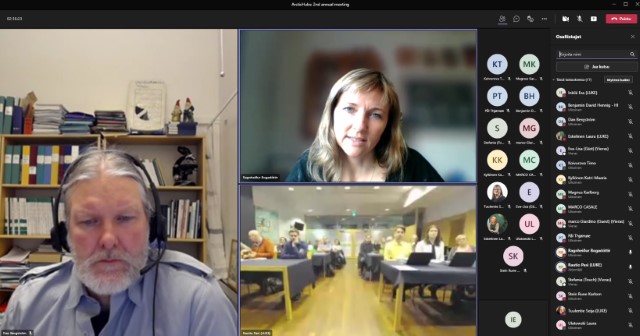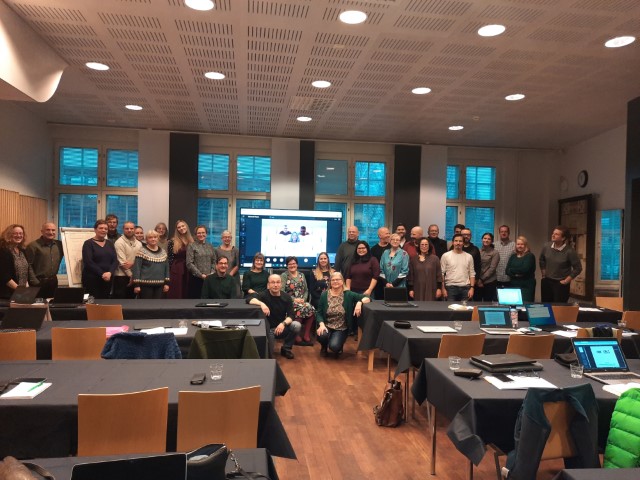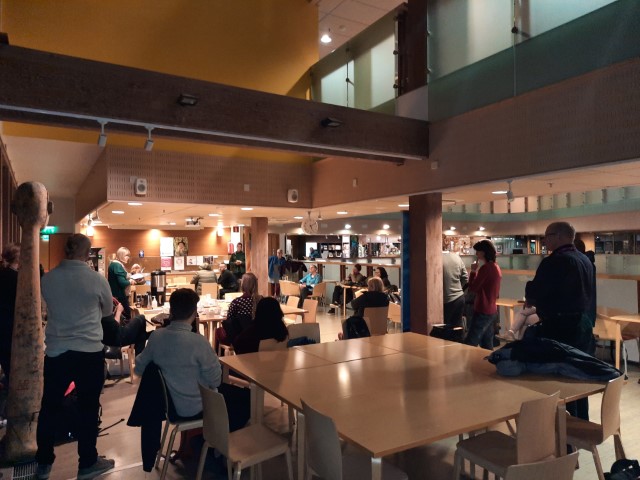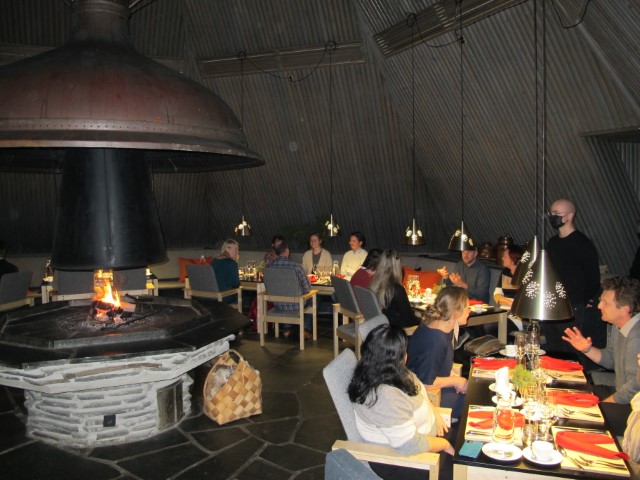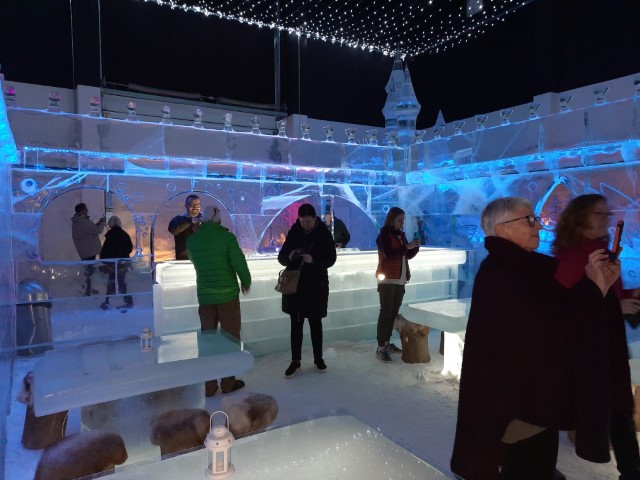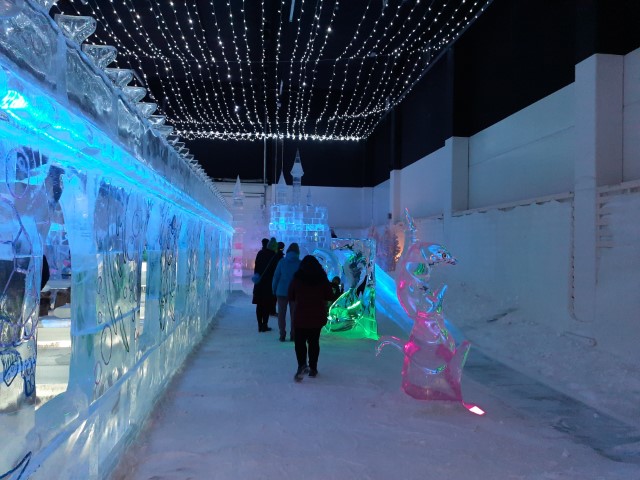Lining up with LUKE on the Arctic circle
The start of the ArcticHubs project coincided with pandemic lockdown, which meant that face to face meetings were impossible during the project’s first year. Now the coordination team at LUKE in Rovaniemi, Finland, has just finished hosting a fast-moving but highly productive few days where, for the first time since the launch, the project teams have converged as one. For three days at the beginning of November this year, 35 researchers from the Arctic regions (along with over a dozen more joining remotely online) of Finland, Norway, Sweden, and Greenland gathered to meet, to talk, and to develop their ideas in both formal and informal conversations and settings – taking the first steps in cementing the ArcticHubs as a project community.

The project community at work: cross-cutting work packages, themes & layers of research
Like all EU Horizon2020 funded research projects, ArcticHubs organises its activities in ‘work packages’, which form the core of the project structure. In ArcticHubs, the work package structure is overlaid with other key elements, specifically:
- its five sectoral hub forms (aquaculture; forestry; tourism; mining; indigenous culture) which lie in different combinations within the 22 Arctic hub locations
- three research and solution led tools (Participatory GIS; Social Licence to Operate; Future scenarios)
For the past year, researchers all around the ArcticHubs consortium have been working across different project elements: gathering baseline data on the global drivers affecting life and economic activity in the Arctic (Work Package 1); developing programmes of work themed around the five hub activities; piloting the Maptionnaire public participatory GIS survey in three of the hub locations; and testing the unmanned forestry machine for land use planning in the Arctic (Work Package 4).
Break out sessions and problem solving cliniques on the first two days of the meeting provided the first real opportunities for researchers to share their experiences and discuss what approaches to take to the practical problems they have encountered –
how to reach out to migrant workers and settlers who do not feel they ‘belong’ to the rural communities of which they are part?
how to use technology to give voice to the Sami fishermen and their stories of the impacts of international fishing conglomerates on the fish?
how to navigate the centralised social media channels of home institutions, and taylor communications to different networks?
Two days of focused conversation enabled participants to familiarise themselves with research locations outside their own field sites, gaining a sense of the reality of the project as a whole, and themselves as part of a diverse, multi-disciplinary research community, united in a common focus.
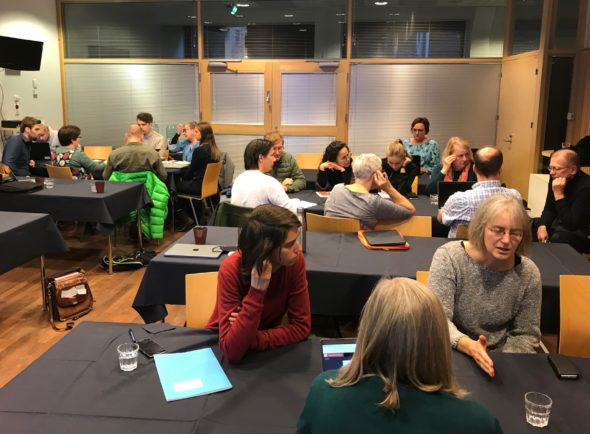
Hub deep dive
One big advantage of being able to gather together in Finland was the opportunity to visit one of the project locations close to the consortium meeting venue, and to hear from some of the local stakeholders there. The industrial centre of Kemi was included in the project for its importance as a forestry hub, but it is also a location where tourism is growing in significance and where changes both in climate and the global structure of the timber industry are being felt in dramatic local impacts and huge new infrastructure projects.
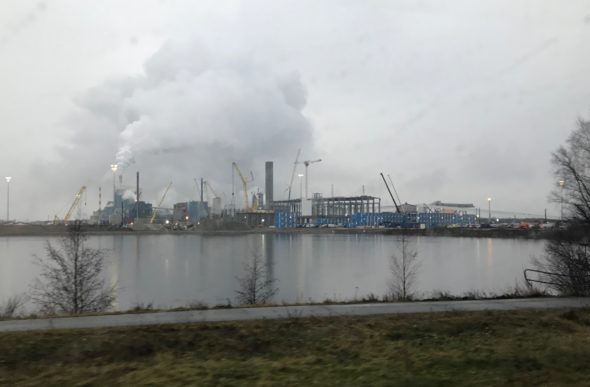
The visit to Kemi demonstrated the value of building this ‘mobile workshop’ component into the consortium meeting,
stimulating participants to reflect directly on the cross-cutting issues in the hubs where they are working across the project locations, and on the significance of the ‘hubs’ concept for the project research. The field visit has been captured in a short video of the day, watch the video here.
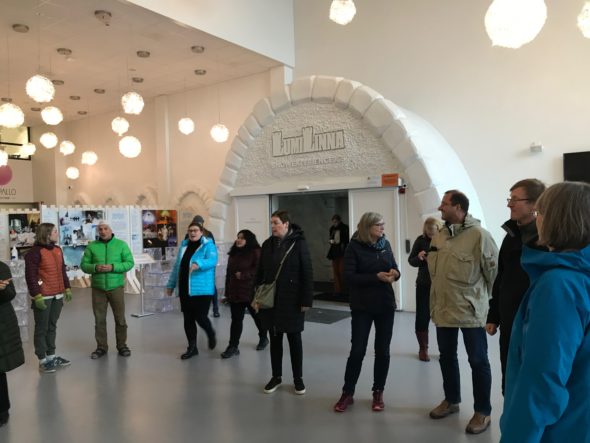
Take away thoughts
With a rapid paced sequence of research activity swirling around the ArcticHubs project, it is useful to pause and reflect for a moment on what aspects can really stand out from our first full consortium gathering?
Taking place during the same week as COP26 in Glasgow, the project certainly seems to be striking the zeitgeist and pushing for responses and resilience particularly when thinking practically around ‘glocally’ influenced land/water resource issues. But more immediately around our specific programme we are beginning to generate a sense of project community. With that comes an even stronger motivation, and understanding of how most effectively to deliver the ArcticHubs project.
That was annual meeting 2021 Rovaniemi. We are all aleady looking forward to annual meeting 2022 when @MagmaGeopark in Rogaland County, Norway will be taking the reins!
